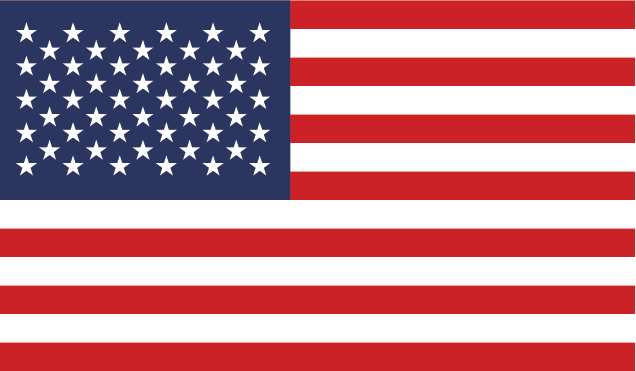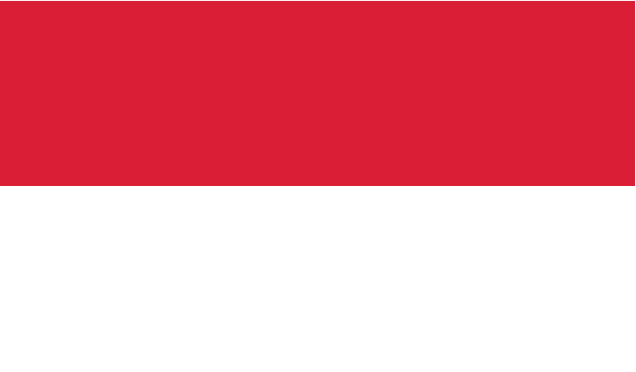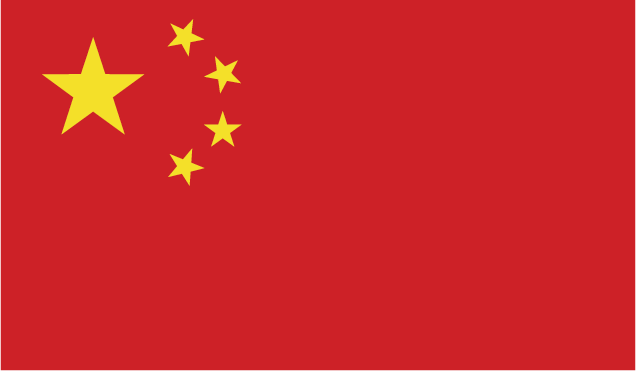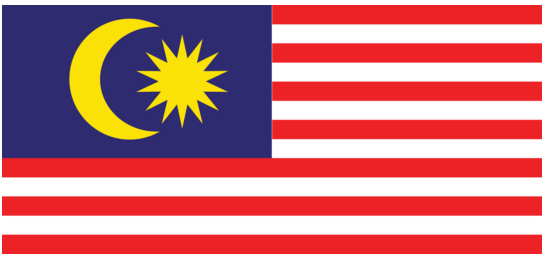The Ultimate Guide to K-Beauty Influencer Marketing in Indonesia
K-beauty influencer marketing in Indonesia
Cracking the Code: K-Beauty Influencer Marketing in Indonesia
Indonesia's beauty scene is a dynamic, fast-paced arena, and K-beauty influencer marketing has emerged as the undisputed champion for promoting cosmetic brilliance—especially those coveted halal-certified gems. Several powerful forces are at play here: Indonesia's massive Muslim population, a generation that lives and breathes tech, and an unyielding demand for beauty products that align with both ethics and faith. This isn't just a trend; it's a full-blown revolution.
The Irresistible Allure of Halal-Certified K-Beauty
Indonesia, home to the world’s largest Muslim population, is the epicenter of the halal beauty movement. Trailblazers like Wardah Beauty, an Indonesian powerhouse, have redefined the game with skincare solutions that proudly sport the Indonesian Halal Association's seal of approval. This certification isn't just a label; it's a guarantee that products adhere to Islamic law, making them the go-to choice for a vast audience that values both efficacy and religious integrity. It's about aligning beauty with belief, a winning formula if you ask me.
Skyrocketing Demand and Untapped Potential
The Indonesian beauty market isn't just growing; it’s exploding. Valued at a staggering USD 9.24 billion in 2024, it's projected to keep soaring, with an impressive 4.60% annual growth rate from 2024 to 2029. Fueling this surge? A young, upwardly mobile population, coupled with a sharp rise in disposable income. And it’s not just about any products; it’s about halal-certified, eco-conscious ones that resonate with the country's predominantly Muslim population and ever-growing eco-awareness. This is not just a market; it’s an opportunity knocking loudly.
Influencer Magic: Connecting Authenticity with Consumers
Influencer marketing is the secret sauce to K-beauty success in Indonesia. Platforms like TikTok, Instagram, and Facebook aren’t just social media; they're the new town squares where brands engage with their audience. Influencers, especially those who genuinely connect with Muslim-majority communities, are the trusted voices. They share their authentic, real-life experiences with halal-certified K-beauty products, building trust and fostering unshakable brand loyalty. Think of them as modern-day beauty gurus, wielding the power of relatability and authenticity.
Setting the Stage for Deeper Insight
As the demand for halal-certified K-beauty products intensifies, understanding the influencer marketing landscape becomes crucial for any brand looking to break through. This introduction is your passport to an in-depth journey into how K-beauty influencer marketing operates in Indonesia. We will unpack the influence of social media, the power of live commerce, and the absolute necessity of authenticity and niche targeting. By delving into these critical aspects, your brand can navigate the Indonesian market with confidence and capitalize on the booming demand for beauty that's both ethical and effective. Get ready to level up your game.
Cracking the Indonesian Market: A Playbook for K-Beauty Influencers
The Indonesian market? It's not just another pin on the map for K-beauty influencers; it’s a vibrant, pulsating ecosystem driven by a unique blend of demographics, culture, and tech. Let's dive into the nitty-gritty.
Demographics & Desires: Understanding the Indonesian Consumer
Indonesia boasts a massive, youthful population, think Gen Z and millennials who are practically digital natives. These aren't just passive consumers; they're actively seeking innovative beauty solutions online. The market is currently clocking in at a staggering USD 9.24 billion in 2024, and it's not slowing down, projected to grow at a 4.60% annual clip through 20292. Translation? This is a sector ripe for the taking.
But here’s the kicker: Indonesian consumers are increasingly drawn to products that check specific boxes: halal-certified, eco-friendly, and crafted with natural, locally-sourced ingredients. This isn't just a trend; it’s a reflection of the country’s predominantly Muslim population and a growing global awareness of sustainability. Skincare? It’s leading the charge, forecasted to surge by 9.4% CAGR through 20282. If your K-beauty products tick these boxes, you’re already ahead of the curve.
Social Media: Where Trends Are Born & Brands Thrive
Social media isn't just a tool in Indonesia; it's the main stage where beauty trends take flight. Platforms like TikTok, Instagram, and Facebook are the go-to spots for brands to showcase their products through engaging content, influencer partnerships, and community building. Think of it like this, TikTok and Instagram are your visual storytellers, allowing you to highlight product benefits and halal certifications through snappy videos and tutorials. This isn't just about getting views; it’s about building trust and establishing credibility3.
Here's where influencers really shine. Those with a strong connection to Muslim communities are essentially trust ambassadors, sharing their authentic experiences and product recommendations. These real-life endorsements are gold, significantly influencing purchase decisions and driving sales. And it’s a two-way street; social media enables direct engagement, allowing brands to address questions, gather feedback, and cultivate a loyal community around their halal K-beauty offerings3.
Local Heroes: Brands That Get It Right
Brands like Wardah have nailed the Indonesian market by perfectly aligning their products with local preferences. Wardah, an Indonesian beauty giant, offers halal-certified skincare solutions that deeply resonate with the country's Muslim population. Their game plan? Leverage social media and influencer marketing, emphasizing the importance of halal certification and natural ingredients. It's a lesson in understanding your audience.
Other players like BASE and Diri Care are also carving out their niche by focusing on natural, vegan, and cruelty-free options. BASE, for instance, caters to those seeking personalized skincare, while Diri Care offers prescription-grade products and in-clinic treatments. These brands are prime examples of how understanding local needs and adapting your products accordingly can lead to significant market penetration and unwavering consumer loyalty2.
Roadblocks & Rules: Navigating the Regulatory Landscape
While Indonesia presents a goldmine of opportunities, it's not without its challenges. A big one is navigating the regulatory maze. Cosmetics in Indonesia must comply with the National Agency of Drug and Food Control (BPOM) regulations, which means securing halal certification and meeting the requirements of the ASEAN Cosmetics Directive (ACD). This involves submitting product notifications, adhering to Good Manufacturing Practices (GMP), and navigating labeling and advertising regulations5. It’s a serious business.
And there’s also the cultural and religious tightrope to walk. Ensuring your products are not just effective but also align with Islamic law and local values is paramount for building trust and lasting loyalty.
In essence, the Indonesian market for K-beauty influencer marketing is a land of opportunity, but it demands a deep understanding of local demographics, consumer preferences, and the regulatory landscape. By strategically using social media, collaborating with the right influencers, and adapting products to local needs, your brand can not just survive, but thrive in this dynamic market. The demand for halal-certified and eco-friendly beauty products is growing, and the time to act is now.
Social Media and Live Commerce: The Power Duo Fueling K-Beauty Influencer Marketing
In the bustling Indonesian market, where K-beauty reigns supreme, social media and live commerce have emerged as the undisputed champions for promoting halal-certified skincare and cosmetics. These aren't just platforms; they're dynamic ecosystems transforming how brands connect, build trust, and convert viewers into loyal customers.
Social Media: The Visual Catwalk for Halal Beauty
Forget static ads; social media is where the magic happens. Platforms like TikTok, Instagram, and Facebook have become the essential arsenals for K-beauty brands. It's a visual playground, where short, punchy videos, step-by-step tutorials, and stunning before-and-after shots showcase the transformative power and, crucially, the halal credentials of each product. Think of TikTok and Instagram as your prime real estate for capturing attention and building authentic relationships with potential customers. It's all about storytelling – visually captivating and inherently trustworthy.
Influencer Collaborations: The Bridge to Credibility
Influencers, especially those deeply rooted in Muslim-majority communities, have become the trusted voices in the halal K-beauty conversation. Their authentic endorsements and real-life experiences are like gold, acting as powerful social proof that drives both credibility and sales. When an Indonesian influencer raves about a product’s halal certification, it resonates deeply, building a loyal brand following that’s built on genuine trust. It’s less about selling and more about sharing, creating a tribe around the brand 1.
Community Engagement: Fostering Brand Devotees
Social media is not a one-way street; it's a thriving marketplace of conversation. Brands can directly connect and engage with their audience through comments, DMs, and interactive live sessions. Imagine answering questions in real time, sharing expert advice, and gathering invaluable feedback—a direct line to your customer's heart. This is how you cultivate a dedicated community around halal K-beauty, creating not just customers but long-term brand ambassadors 1.
Live Commerce: The Interactive Stage for Beauty
Live commerce, or live shopping, has changed the game, especially for halal K-beauty brands. Forget the old retail model; this is about bringing the shopping experience to life:
Real-Time Demonstrations: Seeing is Believing
Live commerce sessions transform product demonstrations into captivating events. Imagine watching an influencer apply the product, breaking down ingredients, and answering questions live. It’s this level of transparency and engagement that empowers consumers, making them truly confident in their purchase decisions 1.
Instant Feedback: Addressing Doubts Head-On
During these live broadcasts, customers can ask questions and get immediate answers. This direct line of communication is key to easing any concerns about halal certification, ingredient quality, or product effectiveness. It's about building a sense of trust and satisfaction—the cornerstones of a successful brand-consumer relationship. It's not just selling; it's building confidence 1.
Exclusive Offers: Fueling Urgency and Desire
Live commerce sessions often come with exclusive offers, jaw-dropping discounts, and limited-edition products. These tactics are strategically designed to spark immediate sales and boost engagement, turning passive viewers into active buyers. By creating a sense of urgency and exclusivity, brands tap into the excitement of live shopping, making it a power tool in their marketing tool kit 1.
Maximizing Impact: The Synergy of Social Media and Live Commerce
To truly unlock the power of social media and live commerce, brands must seamlessly integrate these platforms into their overall marketing strategy. Here's the winning formula:
- Consistent Brand Story: Ensure that every piece of content, whether on social media or during a live event, emphasizes the product’s halal certification and core benefits.
- Strategic Influencer Partnerships: Collaborate with influencers who resonate with your target audience, amplifying your brand message and building genuine trust.
- Interactive, Engaging Content: Use interactive elements like live Q&As, demos, and feedback loops to directly engage consumers and cultivate a loyal community.
- Exclusive Live Commerce Deals: Leverage live shopping to create a sense of excitement, drive immediate sales, and create that all important fear of missing out with limited-time offers.
By harnessing these strategies, K-beauty brands can leverage the full potential of social media and live commerce, cultivating a loyal customer base, and flourishing in the dynamic Indonesian market. This is not just marketing; it’s about building a legacy.
Influencer Marketing Strategies: Authenticity, Niche Targeting, and User-Generated Content
In the dynamic world of K-beauty influencer marketing within Indonesia, a few strategic pillars stand out as absolutely critical for achieving success. Think of it like a finely tuned engine: we're talking about the sheer power of authenticity in influencer endorsements, the laser-focused approach of niche targeting, and the incredible impact of user-generated content in supercharging brand loyalty.
The Unshakeable Power of Authenticity
Authenticity? That's your bedrock, people. It's the absolute cornerstone of effective influencer marketing here in Indonesia. Imagine this: influencers who genuinely use and love halal-certified K-beauty products creating a tidal wave of trust among their followers. It's not just about a paid promotion; it's about real-life stories. When an influencer shares their actual experiences with a product, it resonates deeply, especially in a market where religious adherence is so significant. You see, Indonesian influencers often emphasize that crucial halal certification – a detail that sings to their Muslim-majority audience. This genuineness? It's pure gold. It translates into hard-earned credibility, making followers far more likely to actually try the products they see endorsed. 1
Niche Targeting: Homing in on the Ideal Audience
Niche targeting is another essential piece of the puzzle when it comes to K-beauty influencer marketing. Think of it as using a scalpel instead of a sledgehammer. Influencers often have a specific audience that perfectly matches the target market for halal K-beauty products. This precise approach ensures your message lands in the right hands, maximizing your chances of conversions and ensuring that every single interaction packs a punch. For example, an influencer specializing in skincare for sensitive skin or anti-aging products can reach those with those specific concerns. These aren't just vague suggestions; they're tailored recommendations with a high probability of being acted upon. This level of focus not only boosts the marketing campaign's performance but also fosters deep, loyal brand connections. 1
User-Generated Content: Amplifying the Brand's Message
User-generated content (UGC)? That's your secret weapon in supercharging brand advocacy for K-beauty products. Influencers are the champions of this strategy, often encouraging their followers to share their personal stories with the products they endorse. Think of it like a powerful social proof, showcasing genuine real-world successes and significantly boosting the brand's overall credibility. When followers see other users having positive results, it naturally builds trust and compels them to give it a shot. For example, Indonesian influencers might ask their followers to share those compelling before-and-after shots or videos using a specific halal-certified skincare product. This is community-driven endorsement at its best—far more persuasive than any traditional advertising. 1
Successful Campaigns and Examples
Several successful campaigns across Indonesia demonstrate how these strategies work in action. Take Wardah Beauty, a local brand, who have nailed influencer marketing. They partner with influencers who authentically vouch for their halal-certified skincare products. These influencers don't just put up a post, they share thorough reviews, tutorials, and their personal experiences. The result? They have built a fiercely loyal customer base. And let's not forget brands like BASE and Diri Care, who have used niche targeting to fantastic effect, focusing on natural, vegan, and cruelty-free products that clearly resonate with specific segments of the Indonesian market. 2
In conclusion, the success of K-beauty influencer marketing in Indonesia hinges entirely on authenticity, niche targeting, and the strategic deployment of user-generated content. By masterfully leveraging these key strategies, brands can build trust, engage their audience effectively, and drive sales in a market that's increasingly aware of both beauty and ethical considerations.
Cracking the Code: Gen Z Brand Loyalty in Indonesia with Influencer Marketing
Building lasting brand loyalty with Indonesia's Gen Z is like navigating a complex, multi-layered puzzle, especially when we're talking about K-beauty. This generation isn't just tech-savvy; they practically live on social media, and their BS radar for authenticity and transparency is off the charts. So, how do brands like Wardah – and others – actually win them over? The answer lies in smart influencer marketing.
Micro-Influencers: The Power of "They Get Me"
Forget mega-influencers and old-school celebs. Gen Z is all about realness, which is why they're more likely to listen to micro-influencers—the ones who feel like a friend you follow. These folks might have smaller audiences, but those audiences are highly engaged and loyal. Wardah, for example, has teamed up with micro-influencers who actually use and love their halal-certified products. They’re sharing detailed, honest reviews, real-life tutorials, and personal stories that build trust and a real community vibe. It's not just advertising; it’s a genuine conversation. 1
Content That Clicks: Personalization is Key
Generic content? Nope, Gen Z has zero time for that. To truly grab their attention (and their loyalty), content has to be deeply personal. Influencers who tailor their advice to specific skin types, beauty concerns, or even specific preferences are the ones that cut through the noise. Imagine an influencer specializing in skincare for sensitive skin – they're speaking directly to those who share that struggle, creating a powerful connection. This personalized approach drives engagement and builds a deeper relationship between brand and consumer.1
Transparency: The Foundation of Trust
With Gen Z, you can’t fake the funk. They demand transparency. Brands that are upfront about everything – ingredients, how their products are made, and their halal certifications – are the ones that earn their trust. Influencers who genuinely vouch for a product, sharing their real experiences, and talking about things like halal certifications create this ripple effect of trust. This authenticity is currency, making their followers way more likely to try what they're endorsing.1
Local Love: Speaking the Same Language
To really nail brand loyalty in Indonesia, you’ve gotta understand the local landscape. Wardah gets this. By emphasizing halal certification and the use of natural ingredients, they’ve aligned themselves perfectly with the country's predominantly Muslim population. This isn't just about ticking a box; it’s about respecting cultural values. By taking this seriously, these brands have cultivated a loyal customer base that appreciates their commitment to their unique needs.2
Let's Get Interactive: Community is Everything
It’s not enough to just push out content. You’ve gotta engage, engage, engage. Interactive strategies like live commerce sessions, Q&A, and active community management are key to building lasting loyalty. Use these channels to answer consumer questions, offer expert advice, and gather feedback in real-time. This direct engagement fosters a true sense of community, where consumers feel like they are valued, and their voices are being heard. Live commerce, with its real-time demos, instant feedback, and exclusive offers, all lead to a much more engaging and authentic relationship between brand and consumer. 1
In short, cracking the Gen Z loyalty code in Indonesia through influencer marketing is a balancing act. It's about micro-influencer partnerships, personalizing your content, being transparent, and understanding local cultural preferences. By using these strategies, brands can create a loyal community that values authenticity, transparency, and cultural sensitivity. It's not just about sales; it's about creating a lasting relationship between brand and customer.
Future Trends and Adaptations in K-Beauty Influencer Marketing
The K-beauty influencer marketing scene in Indonesia is a whirlwind of change, and some key trends are emerging that will define the future of this dynamic market. Smart brands are already pivoting to keep up.
Personalization and Hyper-Targeting: It's All About You
Forget generic blasts; personalization is the name of the game. With data analytics and AI getting smarter every day, brands can now hone in on individual preferences like never before. Think partnerships with influencers who get your specific skin needs— an influencer who understands the sensitive skin struggle creating content that hits home. This isn't about reaching everyone; it’s about connecting deeply with the right people1.
Micro and Nano Influencers: The Rise of the Real Deal
Mega-influencers? They're losing their shine. The real action is with micro and nano influencers—they’re the ones with loyal followings and sky-high engagement. Why? Because they're seen as relatable and authentic. Brands like Wardah, are already tapping into this, using micro-influencers to build trust and a community around their halal-certified products. Expect this trend to explode as brands hunt for real-life endorsements that speak directly to Gen Z and millennial consumers1.
Augmented Reality (AR) and Virtual Try-Ons: Tech Takes Center Stage
Tech is no longer just an add-on; it’s integral. Augmented reality (AR) and virtual try-ons are transforming how consumers shop. Influencers can now use AR to showcase products in interactive ways, allowing people to 'try before they buy' without needing samples. This isn't just fun; it's a game-changer for boosting purchase confidence2.
Sustainability and Eco-Friendliness: Beauty With a Conscience
The demand for eco-friendly beauty is skyrocketing, and it’s not just a fad. Brands who get this will highlight natural, locally-sourced ingredients and shout about their commitment to sustainability. Influencers will be key in driving this message, connecting the dots between ethical choices and beautiful skin. This trend fits perfectly with the growing wave of eco-conscious consumers in Indonesia2.
Navigating the Regulatory Maze
The regulatory environment in Indonesia is constantly evolving, so brands need to be sharp. Compliance with the ASEAN Cosmetics Directive (ACD) and halal certifications are crucial. Influencers can be powerful allies here, highlighting the importance of these regulations and building that all important trust and credibility with their followers5.
E-commerce and Social Media: A Seamless Shopping Experience
The walls between social media and e-commerce are crumbling. Brands are now leveraging social platforms to drive direct sales with features like shopping carts and live commerce to make buying a breeze. Influencers, once again, will be the champions of these tools, encouraging their followers to buy directly from the apps they’re already using daily1.
Community Building: It's About More Than Just Products
Building a loyal community is now more important than ever. Influencers are the architects here, using interactive content, live sessions, and direct engagement to create a space where people feel connected and valued. It’s about fostering that deep sense of belonging, ensuring that customers become loyal fans for the long haul. This community-driven approach is the secret sauce to establishing a strong footprint in Indonesia1.
In conclusion, the future of K-beauty influencer marketing in Indonesia is all about personalization, tech innovation, sustainability, and a laser focus on community. By adapting to these shifts and leveraging the influence, brands can not just survive but thrive in this exciting and ever-evolving market.
Unleash the Power of PONGO Tech Services
As the demand for K-beauty influencer marketing in Indonesia rises, the importance of leveraging the right platforms and strategies cannot be overstated. Enter PONGO Tech, a leader in the realm of social media and live commerce, offering a suite of services designed to elevate your brand's reach and impact.
Why Partner with PONGO Tech?
With a proven track record in Southeast Asia, PONGO Tech stands out by providing seamless integration with major social media platforms. Our expertise in influencer partnerships and real-time engagement tools ensures your brand not only connects with its audience but also transforms clicks into customers. Recognized as a top player in live streaming services, PONGO Tech ensures your brand is always ahead of the curve.
Solving Your Marketing Challenges
Navigating the complexities of the Indonesian market? PONGO Tech offers data-driven strategies to pinpoint consumer preferences and tailor marketing campaigns for maximum impact. By connecting brands with a network of niche influencers and streamlining live commerce operations, PONGO Tech addresses the challenges of local marketing and boosts your return on investment.
Connect with PONGO Tech Today
Eager to scale your influencer marketing efforts and drive conversions? Let PONGO Tech lead the way. Visit our Contact Us page to learn more and discover how we can propel your brand's success story in Indonesia's vibrant market.
 English
English 



